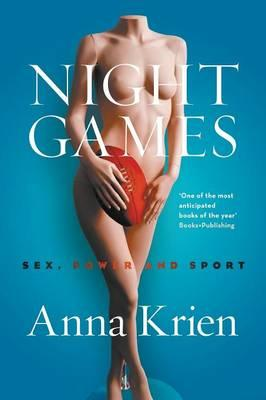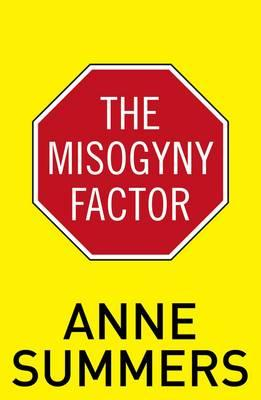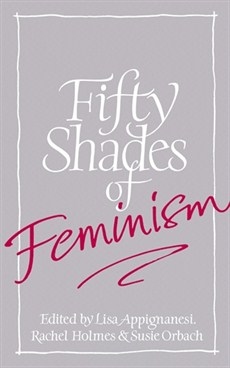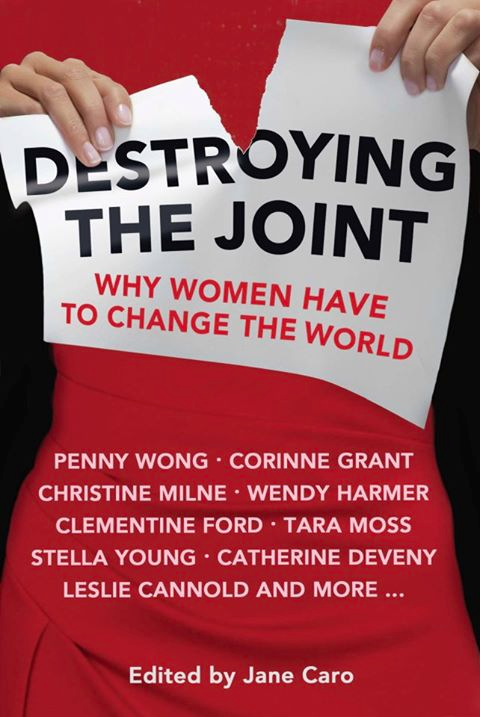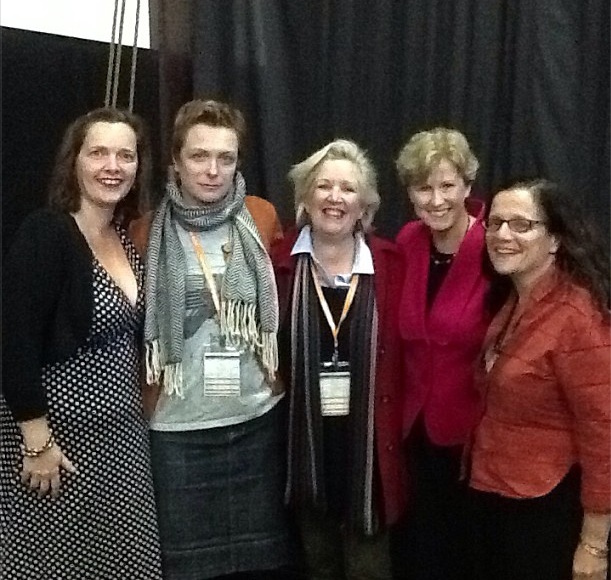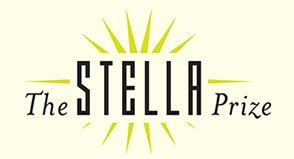women’s writing shines at the sydney writers festival
The Sydney Writers Festival held from 20-26 May featured and abundance of national and international writers and speakers on a broad spectrum of topics. Of particular note were the many strong female voices present in force at the festival, conducting discussions around feminism, women’s issues, sex, and writing in general.
As the festival went on, a common thread of discussion began to emerge from many of these sessions: the sense that something is shifting in society for the better, that a sense of righteous outrage and a passionate desire to change current circumstances is evolving and becoming more clearly articulated. Women are increasingly growing tired of the status quo and this discontent is being demonstrated in the mainstream media and in many recently published books. Along with the outrage is a tangible sense of optimism and possibility.
Journalist Anna Krien discussed her new book Night Games: Sex, Power and Sport. The book is an extraordinary investigation into the widespread practice among professional sportsmen, of using women as sexual objects in team bonding exercises. The book ranges across various sports codes from elite to amateur levels. It indicts ritualized group sex encounters which build camaraderie among sportsmen, who immediately discard the women involved. In this context, says Krien, “rape is not just an act, it’s also a state of mind.” She was calm but passionate in arguing that the male herd culture which permeates institutions such as sports clubs and the armed forces is influenced by and leaks back into broader cultural views of women.
Night Games deals specifically with one court case surrounding an alleged rape on the night of the 2010 Grand Final. In her Sydney Writers Festival session, however, Krien gave the example of the Sydney Swans as a top level AFL club which has taken great strides towards fostering a culture of positivity towards women. Such change needs to come from across the whole club, she says, to tackle the so-called “grey areas” which surround many young men’s understanding of rape.
Anne Summers spoke to a similar desire for change in her festival appearances (a second session was added after the first sold out almost immediately). The legendary doyenne of Australian feminism, and author of seminal Australian feminist text Damned Whores and God’s Police was at the festival to discuss her new book, The Misogyny Factor. The book’s premise is that misogyny is the theory, and sexism is the practice. Both of these, she argues, are rife across Australian society, culture and politics, manifesting in subtly destructive ways. There is a systematic belief that women do not have the fundamental right to be part of society beyond the home.
She pointed to the example of female political ministers in particular. Julia Gillard, Summers says, has been subjected to sustained, rigorous criticism which is hateful, violent and sexualized. The level of hatred which she attracts is “extraordinary to the point of irrationality” and amounts to sexual harassment in the workplace. According to Summers, whatever we might think of Gillard’s politics “we owe her a debt of gratitude for having been the first [female Prime Minister]”.
Despite her frustrations with widespread misogyny, Summers was optimistic about the immediate future of Australian feminism. She pointed to an immense popularity and demand in the media and the public sphere for discussion about sexism, gender issues and inclusion of women’s voices, the likes of which she has not witnessed since the Women’s Liberation movement in the 1970s. If the prevalence of such topics at the Sydney Writers Festival is any indication, this level of demand is only set to increase. During the Q&A, one audience member cheekily thanked Summers “for being our Damned Whore”. Indeed, she has frequently been the target of vitriol, but Summers’ festival appearance demonstrated her unparalleled insight and experience.
In response to the blunt audience question, “What should we do and how do we do it?”, Summers responded that Australian women need to create an independently-funded and organised lobby group, to focus and campaign for the issues which are most pivotal for them. With no illusions that this would easy or quick, she was firm in stating that it was necessary, achievable and had the potential to effect real change.
Contributors to two new anthologies of feminist thought conducted panels at the festival. The first, Fifty Shades of Feminism, is a British collection of personal essays. It has been published to coincide with the fifty year anniversary of the publication of Betty Friedan’s The Feminine Mystique, and to look at what has changed and what is yet to be addressed in the wake of that book’s impact. Three of the contributors to the anthology – Kate Mosse, co-founder of the UK Women’s Prize for Fiction; Jude Kelly OBE, director of the Southbank Centre’s Women of the World festival; and Shami Chakrabarti, director of Liberty – sat on the panel chaired by radio host Natasha Mitchell, addressing what feminism means to them today. The careers of these three accomplished, articulate women have been spurred by their frustration at lack of representation and restrictions which hinder women’s progress. “The ‘F’ word is ‘fairness’” said Mosse, while Chakrabarti said wryly, “I used to think a feminist was just a woman who’d got up off her knees”.
They talked about non-combative methods of feminist action. “Disagreement within feminism is essential,” Chakrabarti said, but the problem is that the definition of feminism has been hitherto dictated by a patriarchal press which divides feminism into factions and pits women against each other. She posited a need for global solidarity between women – but stressed that this does not equate to the patronization of women from other cultures and the developing world by western women. Mosse said that women’s voices have frequently been silenced “on the basis that no one has the right to speak for another woman”. She suggests the solution is to “identify problematic situations, and listen to the women involved, not take charge of their lives for them.” Kelly agreed that the avoidance of any element of “voyeurism” in cross-cultural feminist exchange was paramount.
Discussing the increase in vocal feminism, particularly amongst young women, Kelly said that “women should be immodest about their power and ambition”. Mosse agreed, adding that in her experience it was possible and desirable to “embrace the sense of being in charge while maintaining likeability and compassion, strength and softness.”
There was frustration from the panellists, with Chakrabarti describing gender inequality as “the most significant contemporary social disparity”, and lamenting its insidious and pervasive nature. But they also closed with a great sense of hope and optimism. Mosse suggested that any time a woman was asked to do something that was outside her capabilities, she never turn it down without first recommending another woman for the job. She stressed the power of novels, “the most subversive art form”, which have a total ability to inhabit any time, space, and world free from censorship. Chakrabarti’s final comment was that complaints should always be followed with a proactive response, and quoted her favourite piece of advice: “Martin Luther King Jr never said ‘I have a nightmare’”.
The second recent women’s anthology promoted by a panel at the Sydney Writers Festival was Destroying the Joint: Why Women Have to Change the World, a provocative collection edited by the session’s facilitator Jane Caro. The highly vocal and opinionated panel comprised comedian Catherine Deveny, author Monica Dux, journalist Jenna Price and Greens party leader Christine Milne. The panellists are also contributors to the book, which emerged from the Twitter and Facebook campaigns (initiated by Caro) which came out of Alan Jones’ ridiculous assertion that “women are destroying the joint”.
The book contains a mix of fiction, memoir, polemic, and essays looking at the state of contemporary Australian feminism. The panel’s discussion ranged similarly far and wide across its stated topics of “women, feminism, the world.” This was an immensely popular event where almost every statement made by the panellists was met with an enthusiastic round of applause from the audience.
When asked why she became a feminist, Deveny said it was because she “loved men and boys so much” and was frustrated at seeing men who didn’t fit within constructions of masculinity suffer under them. Milne said that she was brought up to believe girls could do anything, and experienced a rude shock when she eventually found out this wasn’t so. Consequently she feels a “responsibility to move the barriers” which inhibit women. Price said that her feminism stems from her childhood realisation that she wasn’t offered the same opportunities as her brother, and a desire to prevent her daughters’ lives from being similarly “proscribed by their gender”.
Caro described her sense that “something is happening with women and feminism” in terms that recalled Anne Summers’ similar reference to the cyclical nature of women’s rights. There was impassioned discussion and defense of “clicktivism”, the new, online from of social activism which has been so central to the evolution and success of the Destroy the Joint campaign. The panellists are themselves all avid and effective users of social media. They agreed that change and revolution must occur to all levels, from politics to the domestic.
Dux said that feminism can seem alienating for young women because it is so broad. “No feminism talks for all women at all times,” she said, including Destroy the Joint in this statement. What it has done is offered a voice and a means of engagement for women who previously felt disconnected from the debate. Indeed, open forums and events such as this very panel and popularly available books like Destroying the Joint offer a similar means of connecting women to each other across disparate backgrounds and experiences.
Finally, there was the Stella Prize Trivia session held in the Festival Club. It was a fun, informal event, hosted by the acerbic Sally Warhaft with teams comprised of various female Australian authors. A sense of celebration accompanied the event: after a long gestation period, the inaugural Stella Prize for Australian Women’s Writing was awarded earlier this year, to Carrie Tiffany for her novel Mateship With Birds.
The trivia competition featured two rotating teams comprised of six members each, including Cate Kennedy, Hannah Kent, Margo Lanagan, and Josephine Rowe. Questions, all dealing with female Australian writers past and present (some of whom were literally present at the event) were fired rapidly at both teams and often at the audience as well. Correct answers to audience questions were rewarded with piles of books dished out by radio presenter Richard Glover, who moonlighted as roadie.
It was a boisterous, lovingly researched event, where the scores were secondary to the joy of sharing facts and knowledge about books by women. The breadth and depth of the questions and the contestants’ knowledge served to reveal the strength and longevity of Australian women’s writing. It’s impossible to overstate the importance of the Stella Prize in raising the profile of female authors.
Indeed, it would be difficult to overstate how significant the festival-wide focus on women and women’s writing. Inevitably at a large-scale international event such as the Sydney Writers Festival, there will be some confluence of topics and groupings of thematically similar events. But the sheer number of feminist and woman-oriented events offered at the festival was remarkable. Almost all of these events were sold out, and the enthusiasm and appetite for discussion around these topics was palpable. It all contributes to the sense that, as was raised in many of the sessions, there is a very real demand for discussion of and engagement with feminism and women’s issues growing around Australia. A festival of books, ideas and writing such as the Sydney Writers Festival enables and encourages the ongoing development of these conversations.
Veronica Sullivan is a writer, bookseller and masters student from Melbourne. She blogs here and tweets here.
(Destroy the Joint image credit: Christine Milne’s instagram.)

